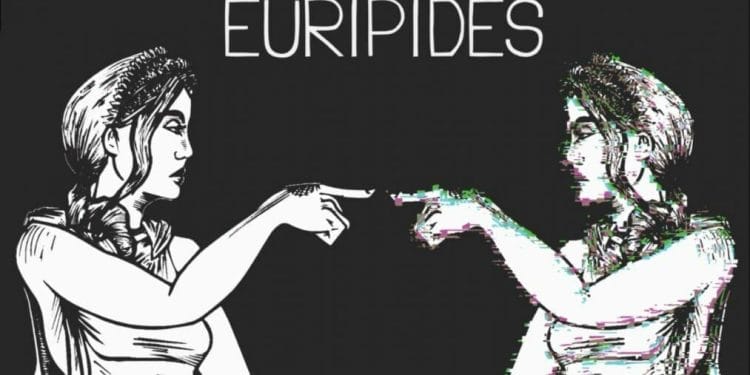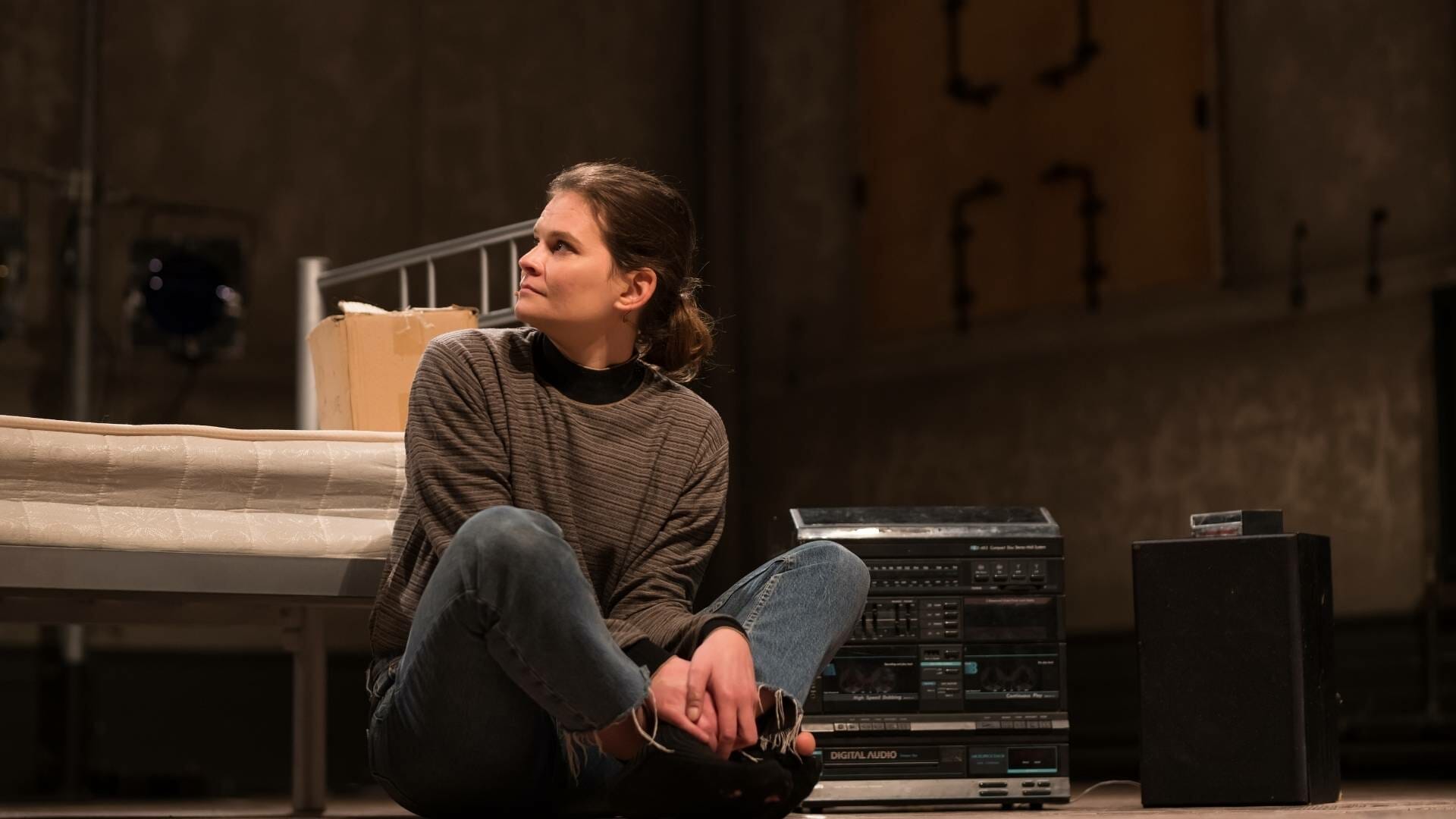Reading Greek Tragedy Online (RGTO) was created during the first weeks of the COVID-19 lockdown when Paul O’Mahony, Artistic Director of award-winning Brighton based theatre company Out of Chaos found all three of his upcoming UK tours cancelled.
Rapidly revising his plans, Paul contacted Harvard University’s Center for Hellenic Studies, based in Washington DC – where he had formerly performed as a visiting artist – to suggest they collaborate on an online project to read Greek Tragedies with a group of international performers.
Less than a week later, Reading Greek Tragedy Online’s first live episode streamed, scene readings of Euripides’ Helen. From there, performances continued, weekly, throughout 2020 and by the end of the year, the project had engaged 115 actors and academics (who provide analysis and discussion as part of each 90-minute episode) from the UK, US, Canada, France, Mexico, Greece, Australia, Cyprus and India.
On December 23rd, RGTO live-streamed 2020’s 41st episode, a reading of Aristophanes’ Frogs (translation by George Theodoridis), featuring 25 actors and musicians and concluded the year having re-visited works by the three tragedians (Aeschylus, Sophocles, and Euripides).
Hosted by Joel Christensen of Brandeis University, each episode is a modern, accessible, and informative exploration of a classic text, read in English. The project has intended to create community during a time of enforced separation, to foster dialogues between actors and academics, and to create a unique educational resource for a wide range of students. As part of the project’s educational commitment, each episode (both live stream and YouTube hosted recording) can be accessed for free.
In 2021 Reading Greek Tragedy Online moves to a monthly stream. March, marks the anniversary of RGTO’s first stream (Wednesday 31st) and returns to an exploration of Euripides’ Helen with academic insight from the University of Bristol’s Lyndsay Coo (translation by D. Rayor). Wednesday 28th April’s reading is Apollonius of Rhodes’ Argonautica with Jackie Murray (University of Kentucky).
Outreach is a key component of Reading Greek Tragedy Online and 2020 highlights included two key international projects:
Playing Medea: a schools and university competition for students in the UK, US, Canada, Greece and Italy where students submitted a recording of a scene from Medea. The judging panel included representatives from the British American Drama Academy and winners were announced during RGTO’s episode on Medea.
Last December RGTO hosted Odyssey ‘Round the World a 24-hour global event that featured performances of every rhapsody of Homer’s epic poem, Odyssey. Recorded by students, faculty, and actors around the world, a rhapsody was released every hour and featured readers from Argentina, Australia, Brazil, Canada, China, Croatia, Cyprus, Greece, Hungary, Italy, Lebanon, Malawi, Mexico, Mozambique, Peru, Poland, Spain, Switzerland, Turkey, US and the UK.
Paul O’ Mahony, Artistic Director, Out of Chaos and Reading Greek Tragedy Online said: ‘We started Reading Greek Tragedy Online to create a community at a time when we were all separated from each other. I missed the sense of sharing something with people, and this was the perfect outlet for us to be creative. It meant we could work with artists from around the globe and explore plays with such extraordinary resonance for our world – plays that speak so closely to the pandemic, Black Lives Matter, leadership, identity and family. We’ve ended up with an extraordinary International ensemble, and we now want to build on the series’ success with workshops, masterclasses, performances and residencies in the future.’
Reading Greek Tragedy Online aims to explore how theatre can be created online and in different spaces, and to build an international ensemble of performers (please see a full list of artistic and academic contributor biographies HERE). The project works with artists who respond to classic texts in a variety of ways, whether as performers, musicians, directors, or translators.
By creating connections between theatre practitioners and researchers, the project hopes to yield future productions and new interpretations of tragedy. In addition to the monthly readings, upcoming activity in 2021 includes a performance of Aeschylus’ The Suppliants for the EU Center at the University of Illinois, a masterclass series on Greek tragedy, and further development of plans to bring together the created ensemble to tour work. Taking a more experimental approach, this year will see the introduction of bilingual performances, interactivity, music, dance and the exploration of newly discovered ancient material. Further details to be announced.















